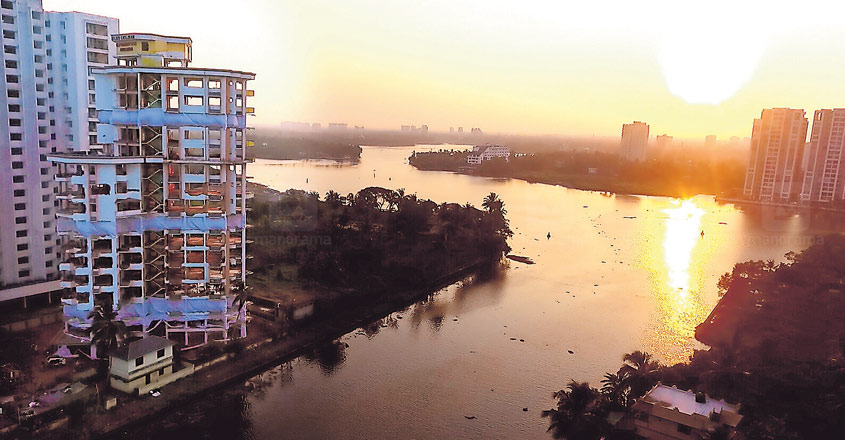Kerala may miss SC deadline for list of CRZ violations

Mail This Article
The Kerala Coastal Zone Management Authority (KCZMA) is yet to complete the verification of constructions violating the coastal regulation zone rules in the state even as the Supreme Court's deadline is set to end within three weeks.
A KCZMA official said they had set an internal deadline of March 7 for the authority to complete the process and only 30 per cent of the work is finished now.
Even though KCZMA officials claimed it is a Herculean task, there may be some political reasons also for the Left Democratic Front (LDF) government wishing to delay the list.
The task is set to put the government in a spot as the local body elections are to be held later this year. The demolition of four illegally built apartment complexes in Maradu near Kochi in January had created a controversy in the state with the owners resorting to huge protests before being evicted from the flats. The government will definitely weigh the political impact if a list of illegal constructions is submitted before the apex court ahead of the local body polls, expected to be held in October.
The Supreme Court on February 10 had given Kerala six weeks' time to gather the details. The court will hear the case again on March 23, 2020.
The KCZMA has to verify 25,862 violations reported by the coastal district committees (CDS).
As per reports, of the 25,862 violations, 21,802 are residential buildings and 2,970 commercial. The remaining 1,090 belong to 'other' category.
A top source in the KCZMA, however, told Onmanorama that the figures are not final and the authority has finished only 30 per cent of the filtration and verification process.
“The figures mentioned in media reports are from the list submitted by the CDSs. We are still in the process of translating the data provided by the district panels because some districts had submitted the details in Malayalam. After segregating the data under various heads such as residential and commercial, we have to verify each case which is an arduous task,” the official said on Thursday.
However, another official, involved in the work, said it would take at least one month to process the data. In that case, the state is likely to miss the March 23 deadline set by the Supreme Court.
A top KCZMA official, however, said they were trying hard to finish the job before the apex court takes up the case on March 23.
The violations would be verified using measures such as the exemptions in terms of plinth area, distance from high tide line, status of applicants (for example, fisherfolk), permission for construction in a particular area, year of building and the category of CRZ, according to KCZMA officials.
Buildings constructed before 1996 would be exempted from the list as they were built prior to coastal regulations zone notification was issued first.
It is learnt that the KCZMA would be trying to reduce the number of residential buildings in the list as much as possible as the socio-economic ramifications of a large number of families facing legal action and threat to their housing facility would be too big to handle.

Lack of experts a concern
KCZMA sources said lack of experts in the field of CRZs could be one reason for the huge number of violations reported from 10 coastal districts. “We guess that some of the violations could have been reported by mistake. We have to find out if the district committees reported the violations based on CRZ rules or some other rules,” an official said.
The Supreme Court had directed the Kerala government to take the exact number of coastal norm violations in the state while hearing the Maradu flats case which led to the demolition of four apartment complexes in Kochi for violating CRZ rules. The Coastal District Committees, formed by the government, prepared the lists by collecting information from local bodies. District-level adalats led by collectors were also held to redress complaints regarding the list.
The apex court set the deadline for submitting the report while hearing a plea by Major Ravi that said the state had not shared the list with the apex court. Ravi, a renowned film director, had a flat in one of the four apartments demolished in Maradu.


